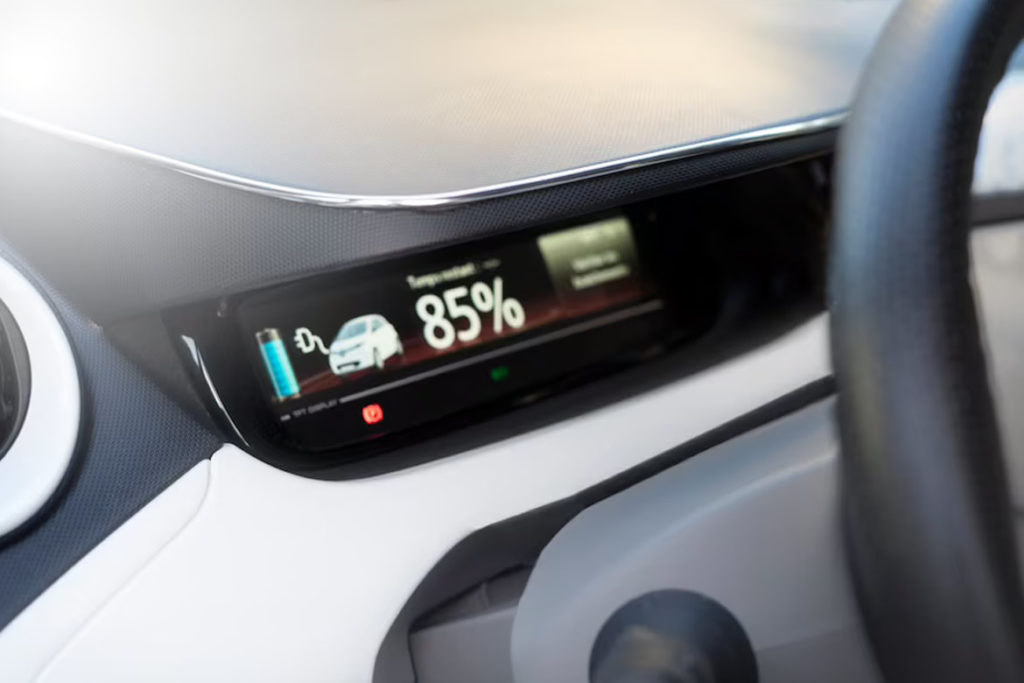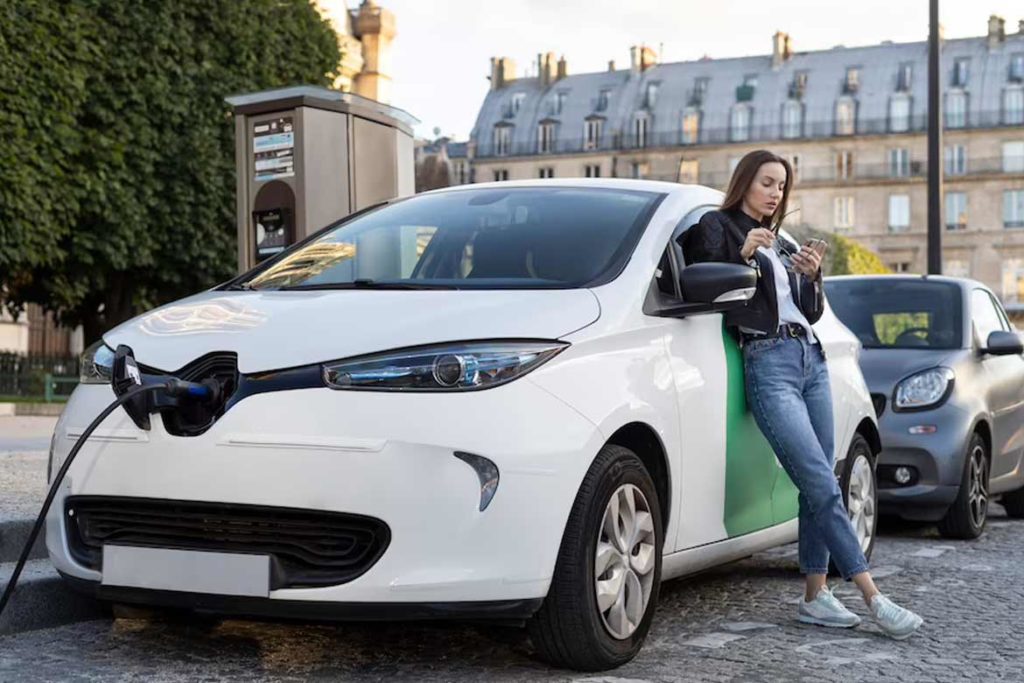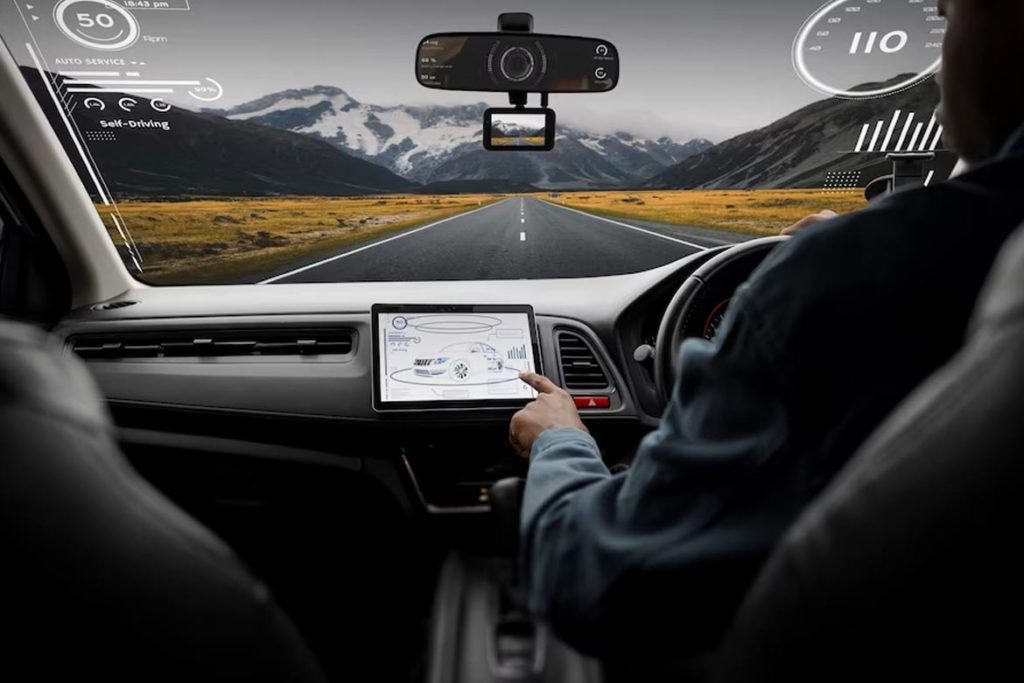Electric cars are becoming more popular and affordable, thanks to advances in technology and environmental awareness. However, buying a used electric car can be tricky, as there are some unique features and issues that you need to consider before making a purchase. Here are some things to check before buying a used electric car.
- Check the Battery

Also Read: Top 6 EV charging solutions providers in India
The battery is the most important and expensive component of an electric car. It determines the range, performance, and lifespan of the vehicle. Therefore, you need to check the battery’s condition and history carefully before buying a used electric car.
One way to check the battery’s condition is to look at the mileage and the available range after a full charge. The mileage will give you an idea of how much the battery has been used, and the range will show you how much the battery’s capacity has degraded over time. A new electric car will have a range close to the manufacturer’s specification, but a used one will have a lower range due to normal wear and tear. You can compare the range with the original rating to estimate how much battery life is left.
Another way to check the battery’s condition is to use an OBD2 scanner and a manufacturer-specific app that can show you more detailed information about the battery’s health, such as voltage, temperature, state of charge, state of health, and any faults or errors. Some apps, like Leaf Spy for the Nissan Leaf, can also show you how many charge cycles the battery has gone through, which can indicate how much it has aged.
You should also find out if the battery has been replaced or repaired at any point in its history. A replaced battery can be a good thing, as it means that someone else has paid for a new or refurbished battery that can extend the vehicle’s life. However, you should verify that the replacement was done by an authorized dealer or service center, and that you have proper documentation and warranty for the new battery.
- Charging mechanism

Another thing to check before buying a used electric car is how it charges and what kind of charger it uses. Different electric cars have different charging standards and connectors, which can affect how fast and convenient it is to charge them.
There are three main types of charging for electric cars: Level 1, Level 2, and DC fast charging. Level 1 charging uses a standard 120-volt outlet and can take up to 20 hours to fully charge an electric car. Level 2 charging uses a 240-volt outlet and can take up to 8 hours to fully charge an electric car. DC fast charging uses a high-voltage station and can take up to an hour to charge an electric car up to 80%.
You should find out what kind of charger your used electric car comes with and what kind of charger it supports. Some electric cars come with a Level 1 charger that you can plug into any outlet at home or work, but some may require a Level 2 charger that you need to install or find at public stations. Some electric cars also support DC fast charging, which can be very convenient for long trips or emergencies, but some may not.
You should also check if the charger is in good working condition and if it has any signs of damage or wear. You should also make sure that the charger matches the vehicle’s connector type and voltage. Some common connector types are J1772 for Level 1 and Level 2 charging, CHAdeMO for DC fast charging for Asian vehicles, and CCS for DC fast charging for European and American vehicles.
- Verify Normal Car Stuff
Besides checking the battery and the charger, you should also verify the normal car stuff that you would check for any used vehicle. This includes things like:
- The exterior and interior condition of the vehicle
- The tires, brakes, suspension, steering, lights, wipers, etc.
- The odometer reading and service history
- The title status and vehicle history report
- The safety features and ratings
- The warranty coverage and expiration date
- You should inspect the vehicle thoroughly or hire a mechanic to do so.
- You should also compare the price with similar models and negotiate for the best price.
- You should also ask the seller or dealer any questions you may have about the vehicle’s history, features, warranty, or price.
- Get a Test Drive

Finally, before buying a used electric car, you should always get a test drive. A test drive will allow you to see how the vehicle performs on different roads and conditions, and how it suits your driving style and needs. A test drive will also let you check for any issues or problems that may not be obvious from a visual inspection or a vehicle history report.
Some things to look for during a test drive are:
- The acceleration, braking, handling, and steering of the vehicle
- The comfort, space, visibility, and ergonomics of the interior
- The functionality, usability, and connectivity of the infotainment system
- The noise level, vibration, and ride quality of the vehicle
- The availability and compatibility of charging stations along your route
- The actual range and battery level of the vehicle
Benefits of Buying a Used Electric Car

There are several advantages that can make a used electric car a worthwhile investment.
The main benefit of buying a used electric car is of course the lower price. EVs are still more expensive than their standard gasoline counterparts, especially if you want an EV with a decent range and feature set. However, buying a used electric car can save you thousands of dollars compared to buying a new one. You can also take advantage of any incentives or rebates that may be available for used EVs in your state or region.
Another benefit of buying a used electric car is the lower cost of ownership. EVs have lower fuel costs, as electricity is cheaper than gas in most places. EVs also have lower maintenance costs, as they have fewer moving parts and fluids that need to be replaced or serviced. EVs also have lower emissions, which can help you reduce your environmental impact and avoid any fees or taxes for high-polluting vehicles.
A third benefit of buying a used electric car is the higher resale value. EVs tend to retain their value better than gas-powered cars, as they have less depreciation and more demand. This means that you can sell your used electric car for a good price when you want to upgrade or switch to a different vehicle.
Conclusion
Buying a used electric car can be a smart and rewarding decision if you do your homework and know what to look for. By following these tips, you can find a used electric car that meets your expectations and budget.

